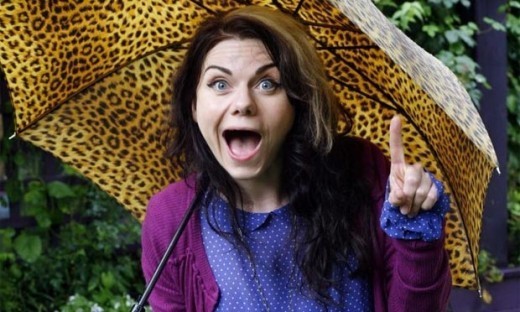
For many, Lisa Kudrow will forever be associated with Friends (NBC, 1994-2004), the epitome of conservative network television. And yet, with both The Comeback (HBO, 2005; 2014) and Web Therapy (L Studio;

For many, Lisa Kudrow will forever be associated with Friends (NBC, 1994-2004), the epitome of conservative network television. And yet, with both The Comeback (HBO, 2005; 2014) and Web Therapy (L Studio;

Cast your minds back, if you will, to the year 2010, when the BBC was poised to launch a brand new detective on our screens. Dark and tousle-haired, his deductive powers would prove a constant source of amazement to his more grounded partner (and the viewing audience), while causing the local constabulary no small amount of irritation.
At the moment I’m editing a book on Music in Comedy Television. As part of the project I decided to go back to iconic pieces of comedy television I remember having had a musical impact, starting with 80s sitcoms (judge me, go on). I was expecting that some of the bits would have aged badly – comedy often does, particularly as standards for social and political correctness develops.

Christmas is long gone and some of its televisual pleasures have been explored in the CST blogs by Kenneth Longden (https://cstonline.net/bbc-christmas and https://cstonline.net/sherlock-abominable) and Lorna Jowett (https://cstonline.net/not-so-cosy). But one Christmas special which began on Boxing Day on BBC1 still lingers on. Dickensian (Red Planet Pictures) made the usual Christmas use of a Charles Dickens’

It was in the November of 1989 when the first private television station in Greece transmitted its first signal and new frequencies invaded the audiovisual landscape which had been dominated by the state monopoly. This invasion was a turning point in the history of Greek television, as it was the stone that moved the stagnant waters of the strict and petrified television landscape, fostered by the state-bred system.

The BBC is under threat like never before. That seems to be the consensus about the two events of past weeks: a budget raid by the Chancellor that saddled the BBC with absorbing the £630 million cost of free TV licences for the over-75s, a seemingly hostile charter review process, kicked off with a Green Paper and the appointment of an advisory group by the new culture minister John Whittingdale.

I passed my viva! Hurrah! Good, now that’s out of the way, let’s talk about Channel 4 Comedy commission Catastrophe , which is currently airing its second series, less than a year after its first went out in January of 2015. And let’s also get something else out of the way: the total agreement I am in with the majority of TV critics about its being utterly brilliant. Good. That’s done too.
Just before Christmas I was suffering from ‘Flue, we had just lost our third pet in a year and I was not at my best in a number of other ways. I arose from my sick bed mildly feverish by then and sought comfort in Television Drama. Not just any drama, but Doc. Martin (Buffalo Pictures for ITV, 2006-) for me the ultimate comfort television.

Liz Giuffre’s earlier blog ‘From Ramsay Street, With Love’ starts with an apology and ends with an assurance that Australians know that long-running soap Neighbours is ‘a bit embarrassing and a bit backward’. As a Scottish fan of the soap, I read her blog with fascination.

Sometimes, things coincide to throw a particular interesting light on an issue that needs raising. This week, for me, these things were the continued discussion in Europe (including the UK) about the sex attacks in Cologne on New Year’s Eve, an article on the hidden rise of violence against women and, the return of Tracey Ullman’s Show.